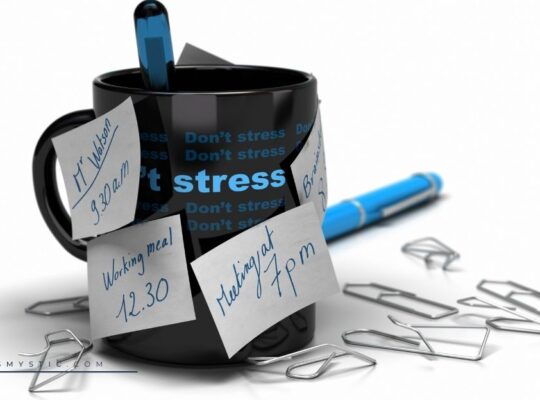Life is messy, difficult, and full of challenges. Every day, we’re all faced with tons of new experiences—some good, some bad, and some downright confusing!
Fortunately, life’s challenges and tough times serve an important purpose. We all learn through “trials through fire.” Even though tough times wear us down, we leave these situations with stronger knowledge to serve us well as we move forward through the future.
My own life has served me a healing dish of challenges, difficulties, and disappointments. Fortunately, I’ve been able to survive all these experiences and am better for it—though some lessons took longer for me to learn that I’d care to admit, I did emerge from them more knowledgeable and ready to tackle the next tough situation.
30 Lessons Life Has Taught Me
1| A desire for change must come from the inside.
When I think about every time someone’s ever laughed at me or tried to make me feel bad about myself, that’s really all they managed to do–make me feel cruddy. In the end, these humiliations never inspired me to make any real-life changes. For example, as an overweight kid, I’d accepted my lot in life as someone who was going to be laughed at for being fat.
When others teased me for being overweight, it made me feel terrible, which in turn made me overeat and withdraw from others. When the pressure came from people on the outside of the situation, it continued my bad habits cycle.
As an adult, I developed an intrinsic motivation to lose weight and get into better shape. The desire to make real changes was never inspired by the bullies I’d experienced in my youth. I made those changes because I personally wanted to make them–not because someone made me feel terrible.
This has also become a pattern for other changes I’ve made over time. I am finally ready to make a change when I personally accept that it’s time to do so.
2| Nobody is perfect (no matter how perfect they may seem).
Everybody moves through life at a different speed. In a world obsessed with constant social media scrolling, it’s far too easy to be convinced that everyone is living a perfect life. I’ve learned that most people’s social media feeds only show the highlight reels of their lives.
We see all the new babies, promotions, accomplishments, and good times, but how realistic is all of this in reality? It’s truthfully not that realistic at all!
Despite the picture social media tends to paint, nobody is perfect! Of course, nobody is going to share about their worst (or even their mundane) moments for the world to see. When the FOMO (fear of missing out) hits during a social media scroll, it’s important to remember the highlight reel theory. You aren’t seeing anyone’s messy house, debts, arguments, or losses because people don’t see the value in sharing those things.
3| If you don’t have something nice to say, it’s better to say nothing at all.
People are more likely to remember a negative experience over a positive one. That really sucks, but it’s the truth! Over thousands of years of evolutionary change, humans have developed a serious negativity bias.
Rather than being remembered for saying something hurtful about someone, I’ve learned to keep my thoughts to myself when they’re unkind. After accidentally letting a negative comment slip into conversation, I realized how damaging that is between me and the person I’m speaking with. I’ve learned that, if I really feel the need to say something negative to someone, it’s usually rooted in a need for a more serious and in-depth conversation.
4| Listen more and talk less.
Talking is important (and I absolutely love to talk), but usually listening is the best route. If your mouth is moving, you aren’t taking time to really hear what the other person is trying to say. When you spend more time listening to others–and not trying to butt into the conversation with your own opinions and thoughts–you’re not only showing them that you care, but you’re also learning a lot from them.
5| Saying “no” isn’t a bad thing.
I used to be incredibly bad at saying “no.” I couldn’t stand to see the look of disappointment on someone’s face when I had to tell them no to something. However, I’ve learned that saying “no” isn’t bad–it means I am valuing my time and also protecting my time for commitments I’ve already made. When I overextend myself, I’m not able to perform at my best or produce my best work.
6| Find your preferred self-care methods and practice them often.
Self-care is like a set of fingerprints–everyone’s methods are unique to them! When you find something, you love to do that refreshes you after a long day, make sure you take time to do it regularly. Taking care of yourself is important if you hope to share your skills, talents, and efforts with others.
7| Realizing you need help is OK.
If you’re particularly strong willed or stubborn, this will resonate with you. I don’t like to bother others by asking them for help. However, I’ve learned over time that needing help isn’t a sign of failure or weakness.
When you realize you need help and then act on it by seeking the help, you’re supporting yourself and ensuring that the task or problem at hand is getting the attention it truly needs. Asking for help when you need it makes you more productive, efficient, and careful–not weak.
8| You will never, ever have 100% control over everything happening in life.
Personally, this life lesson ties completely into realizing that asking for help is a good thing. Not having control over everything drives me nuts, but it is simply a fact of life. No matter how carefully I plan everything, I can’t guarantee that something won’t go wrong. Mistakes happen, disasters strike, and the unexpected occurs. The sooner you accept that you won’t ever have total control over everything, the happier you’ll be in the long run.
9| The only thing you have guaranteed control over is yourself.
Luckily, you are afforded total control over one thing. I take great comfort in knowing that, despite all the crazy contingencies in the world, I can take full control and responsibility over myself and my own actions.
Even when something difficult happens, I can control how I want to react to the situation. I have the power to make a bad situation better by reacting positively. I can approach a chaotic situation with a sense of calm. I can set my emotions aside to make a fair judgement. All of these things are possible because of my self-control.
10| Take time to turn off the technology.
Dedicating some daily time to yourself is crucial for mental health. One of the best ways to protect this “me time” is to silence or turn off your cell phone, laptop, or anything else that directly connects you to the outside world.
Being available 24/7 is only convenient to others–never yourself. Give yourself the honor of being unavailable for a little while so you can focus on your personal needs. After a certain point in the evening, put your phone on ‘do not disturb’ and close the laptop lid so you can take some time to really focus on recharging yourself.
11| Find some kind of physical activity you enjoy and do it often.
Regular exercise and movement are necessary for bodily health. However, if dragging yourself to the gym after work every day feels impossible (or even downright unpleasant)–don’t choose that as your physical activity!
It took me a while to learn this, but there is no gym requirement for exercising and getting in shape. There are tons of other ways to get your body moving. The most important requirement is that it’s something you actually enjoy doing so you’ll continue to do it on a regular basis. For example, joining a local sports league, taking hikes, kayaking, playing with your kids before dinnertime, and walks around your neighborhood all qualify as physical activity!
12| Allow yourself to feel and explore all of your emotions.
People are emotional beings. Everyone has emotional reactions to things because it’s totally natural. Suppressing emotions (and refusing to address them later) is a recipe for disaster.
Over time, life has taught me that feeling and exploring emotions is a valuable tool. When you can explore your emotions, you learn why you were triggered to feel that way. Often, these explorations are gateways to understanding other problems and addressing other serious needs in your life.
Besides, bottled emotions often lead to damaged relationships and other bigger problems down the road, and nobody needs more life problems.
13| Give practices like meditation and mindfulness a try.
Spending time with yourself to better understand yourself is one of the best time investments you can make. It may feel a little unnatural at first. Initially, practicing different forms of meditation and mindfulness can feel tricky, but after some regular practice, you’ll find yourself entering a realm of calmness and understanding like you’ve never experienced.
I discovered how useful meditation is once I realized it’s an excellent tool to control anxiety. Any time I feel stressed out or anxious, I complete a quick meditation session to bring myself away from my anxiety and back to the present moment. It’s surprisingly effective and helps me put my current situation into better perspective.
14| Some of every paycheck should be dedicated to your savings account.
My first adult paycheck was gone within a day! After years of handling finances, living independently, and paying back student loans, I now truly understand the value of each dollar.
Make a commitment to your future self by stashing away a little of each paycheck into a savings account or emergency fund. It’s tough at first, but saving money is an important habit to establish early. Doing so will relieve an immense amount of stress during a future emergency–unplanned car emergencies, medical visits, or surprise bills will be much less frightening when you know you have a safety net in place.
15| Communicate, communicate, communicate.
When you first meet a new person, especially if they’re someone you’re going to be working with professionally or hoping to develop a deeper relationship with, learn more about how they best communicate. It seems like a weird way to begin a new relationship with anyone but trust me–it’s a huge key toward success.
Everyone has different expectations and needs when it comes to regular and healthy communication. The sooner you’re able to establish clear lines of communication between you and this new person, the stronger your relationship will be. So many relationships, personal and professional, are scarred by communication mishaps.
16| View everything as a learning opportunity.
Life is full of information. Every time something happens to us, good or bad, we can take away a lesson from it. In an attempt to keep a more positive attitude, I’ve chosen to start looking at everything in life as a chance to learn something.
This is especially important for life’s struggles. When something bad happens to me, of course it makes me feel terrible. However, I am also embracing the value of what it can teach me.
By choosing to learn more about what went wrong and why, I am taking something positive from a bad situation. Doing so helps me process the events in a healthier way, allowing me to move forward with a growth mindset.
17| Everything feels impossible to do until it’s done.
Have you ever looked at some huge, daunting task and couldn’t even imagine how to get started? Perhaps that overwhelming sense of impossibility stopped you from even trying to do it. I am guilty of this feeling, and many things in my life have gone untouched or unfinished because they felt so impossible to do.
A secret I’ve learned over time to accomplish these seemingly impossible tasks is simple: Just get started. If the task has a long list of to-do items to complete, begin with the first thing on the list. When you simply get started, the other pieces of the puzzle tend to fall into place. The hardest part is absolutely getting started.
18| Keep a schedule or notebook to keep your commitments organized.
Every adult needs some kind of calendar system. If you have a job (or two), children, social plans, and errands, take time to write down important details so you don’t forget them.
Broken or forgotten commitments not only hurt you, but they also can hurt others (if you’ve ever forgotten a friend’s event or your child’s soccer game, you know how real that disappointment can be). Do yourself a favor and keep some kind of organizer, paper or digital, to keep your plans and events organized.
19| Develop some regular routines to help set yourself up for success.
Routines aren’t just for children–adults absolutely need them, too! Having some regular routines is one of the best ways to keep all the other areas of your life running smoothly. I’ve learned to implement routines throughout different parts of my life. Here are some examples of my routines:
- A routine for preparing healthy meals and snacks for the week
- A routine for the last hour or so before I go to sleep
- A routine for getting ready in the morning
- A routine for cleaning my house
- A routine for keeping my notes for work organized
- ….and many more!
I’ve learned that keeping these little routines as regular as possible keeps my life somewhat predictable. Not only does the provide some predictability for my schedule, but it also brings a certain level of comfort and expectation for the day, which helps keep me feeling calm.
20| Practice humility and learn to say, “I was wrong.”
Being wrong stinks, but it definitely happens. The sooner you can get comfortable with learning to admit it to yourself and others, the easier your life will become….even in the midst of an error you’ve made!
People who can’t show some humility and admit fault often have relationships that suffer. When you can’t admit that you were wrong, other people see your behavior as self-centered and egocentric, leading them to not trust you. When people can’t trust you to do the right thing, you can’t develop meaningful relationships with them.
21| If you borrow someone’s car, return it with a full tank of gas.
Although I mentioned a car in this life lesson, it applies to so many other facets of life. Any time you borrow something from someone, return it a little better than how you found it. Not only does this forge a stronger sense of respect and trust between you and the other person, but it adds an unexpected and positive lift to someone else’s day.
When you have an opportunity to spread a little extra good, this is an excellent way to do it. Put gas back in the tank, stock their fridge with extra drinks, and offer to pay for their meal—these little efforts make a big impact!
22| Take time to celebrate the small stuff in life.
Life is often weighed down with so much negativity. Find small ways to recognize and celebrate something every day. Even if it seems like a small win, it’s still significant and important to recognize.
Most days, you’ll only experience life’s small wins—getting a project done, cleaning the whole house, or enjoying a special dessert. Whatever your small daily wins are, take time to appreciate them and reflect on the good things in your life.
23| If you make a mistake, own up to it.
Mistakes happen. You can be the most careful and detail oriented person and still make mistakes. In my life, this lesson is closely related to learning how to say, “I was wrong.”
I used to feel tempted to try and cover up a mistake, but this usually ended in disaster. When you try to hide a mistake, it often involves some level of secrecy or lying to hide the details of the situation from others. This is almost always a pathway to trouble—after a while, the deceit becomes too great to manage, leading to an unfortunate reveal to the people you tried to hide it from in the first place.
Owning up to a mistake when you realize you made it can feel really difficult to do, but it’s much better than waiting, lying, and trying to fix it alone. Save yourself tons of time and grief by owning it and working to fix it with assistance.
24| Let people know how you feel about them when you have time to do it.
This is one of the hardest lessons life ever taught me. Unfortunately, too many people experience this dreaded lesson themselves. It’s one of the hardest to learn because it involves extreme loss to learn it.
I have a memory of seeing my grandfather for the last time. He was in a hospital bed, unconscious, and unable to communicate with anyone by the time we’d arrived at the hospital to visit him. Because of his unexpected health decline, I didn’t get to have a last conversation with him. I didn’t have a chance to tell him how much I loved him or how much of an impact he made on me during my life.
The next time you’re with friends and family, take a mindful moment with them: Appreciate them, cherish the time you’re getting to spend together, and most importantly, make sure they know how you feel about them. Never take the risk of saying goodbye without knowing that they know how you really feel about them.
25| Give self-mastery a try.
Self-mastery is one of the most useful and versatile tools a person can ever have in their personal arsenal of skills. Self-mastery refers to having a complete and thorough understanding of your mind, body, and spirit.
Learning self-mastery takes time, patience, and daily practice, but once you begin to grasp it, you can apply it to any new challenge you face in life. Since self-mastery involves having a thorough understanding of yourself, you can attack new goals and challenges with ease. Understanding yourself completely means you’re able to learn new skills quicker, accomplish complex tasks with ease, and understand your limitations better.
26| Embrace new challenges and experiences.
Sometimes new challenges and experiences aren’t exciting (the first time I had dental repair work done was honestly more frightening than exciting) but approaching them with an open mind and an eagerness to get started makes every new situation a little better.
Because I chose to put on a brave face and get myself to the dentist for my procedure, I not only looked after my health, but also learned that the procedure wasn’t quite as scary as I’d imagined it would be.
As a bonus, I took some of the fear out of dentists for myself and made future appointments feel a lot more relaxing. Taking the plunge and getting stuff done with a good attitude makes a huge difference in the experience you’re going to have.
27| Find a way to put a positive spin on negative thoughts or situations.
This might sound a little corny and forced, but it’s true—even in the most difficult life situations, you can choose to put a positive spin on your attitude about them.
Your attitude is everything. For me, learning that the only thing I had 100% control over was myself also meant adopting a more positive perspective about all the things that happened to me. Yes, other people might be angry or upset, but I knew I could find the positives of the situation and move forward quicker because of it.
Learning to be positive takes time and practice. In fact, in can be downright difficult at first, especially if you have a particularly negative outlook on most parts of life. Start small and practice changing the way you think about things and speak to yourself. In time, your new positive attitude will begin to outshine the negativity.
28| Feed your body the nutritious fuel it deserves.
Everybody deserves to eat fulfilling, healthy, and nutritious foods! Make sure you’re feeding your body frequently enough with lots of the nutrient rich foods it needs to be strong and healthy.
Unhealthy snacks are tempting; I personally spent a lot of time reaching for them over fruits and vegetables. However, as I’ve learned more about taking care of myself, life has taught me the importance of “putting goodness in” to get the best out of my body.
29| Never skip a regular medical checkup.
Doctors, dentists, and specialists can seem scary. However, ignoring your health can be incredibly dangerous. Regular checkups are intended to make sure your health is in good shape. Even the smallest beginnings of a problem can be detected during a routine checkup.
Skipping these checkups and appointments can let small problems go unchecked. Save yourself grief, stress, and money by ensuring your small problems are caught early enough to treat easily.
30| Take some time for yourself every day.
Life (and all the people who fill it) are demanding. In a world where it feels like you’re being pulled in all directions, make sure you’re taking time to dedicate to yourself each and every day.
Whether you’re taking time to exercise, practice a hobby, make something, or catch up with your favorite TV show, having some “me” time is the best way to unwind and recharge your batteries. If you’re too concerned with giving all your time to others, you’ll eventually wear yourself out. Keep yourself going by giving yourself time to recuperate accordingly after a long day.







